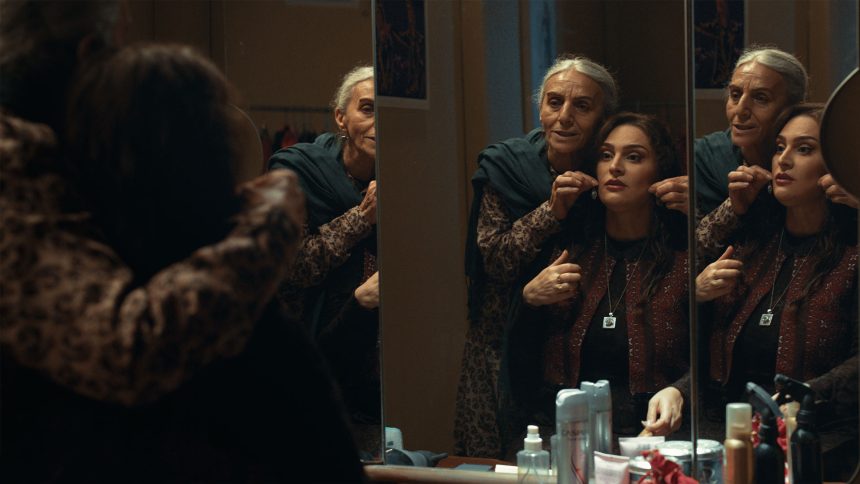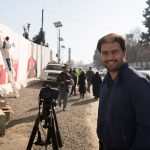The Witness, or it’s original title Shahed, follows the lives of a group of women living in Iran, who start out attempting to make the best out of a bad situation, then descend into a nightmare, and finally emerge again, trying to find some hope.
The protagonist is Tarlan, played coolly and powerfully by Maryam Bobani. She’s older in years, and has been teaching and organising workers unions and protesting for as long as anyone can remember. Allusions to her backstory help the audience understand the long arc of resistance against a regime that has sought to quash women’s rights for decades, turning them into second- class citizens without the power to ask for justice, let alone have a little fun. Celebration and dance is the thread that lights our way through the darkness. Women in Iran do find ways to be together and enjoy themselves, and the dance school that the story starts in is one such place, but it is vulnerable to the vagaries of the government and the husbands of the women who spend time there.
Zara, played by Hana Kamkar, is Tarlan’s adopted daughter, the adoption being a key part of the power struggle that takes place as the narrative progresses; Tarlan has little official capacity to protect and fight for Zara as things take a turn for the worse. Zara’s husband is Solat, played by Nader Naderpour, who is angry and jealous and violent and wants the dance school shut down. Most powerfully, he’s well connected. His actions change the course of the film and the lives of the women in it. It’s a thriller and a political drama, with tension building around the question of whether he, like of lot of men in Iran, can get away with murder, and whether a hero of an older lady with one more fight left in her can actually make a difference.
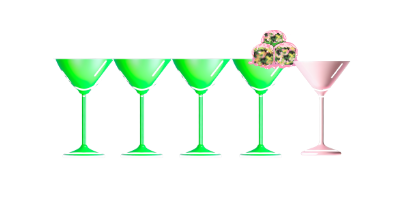
Screening in the Persian Film Festival 2025
World Premiere at Venice Film Festival 2024. Winner Audience Award – Armani Beauty (Orizzonti Extra)
Selected for São Paulo International Film Festival 2024, Stockholm International Film Festival 2024, Golden Horse Film Festival 2024
Winner Audience Award for Fiction Film Vesoul Asian Film Festival 2025
Director Nader Saeivar
Screenplay Jafar Panahi, Nader Saeivar
Cinematographer Rouzbeh Raiga
Editor Jafar Panahi
Music Karwan Marouf
Production ArtHood Films (Said Nur Akkus, Silvana Santamaria), Golden Girls Films (Arash T. Riahi, Sabine Grüber), Sky Films (Emre Oskay, Timur Savci)
Starring Maryam Bobani, Nader Naderpour, Hana Kamkar, Abbas Imani, Ghazal Shojaei, Fahrid Eshaghi
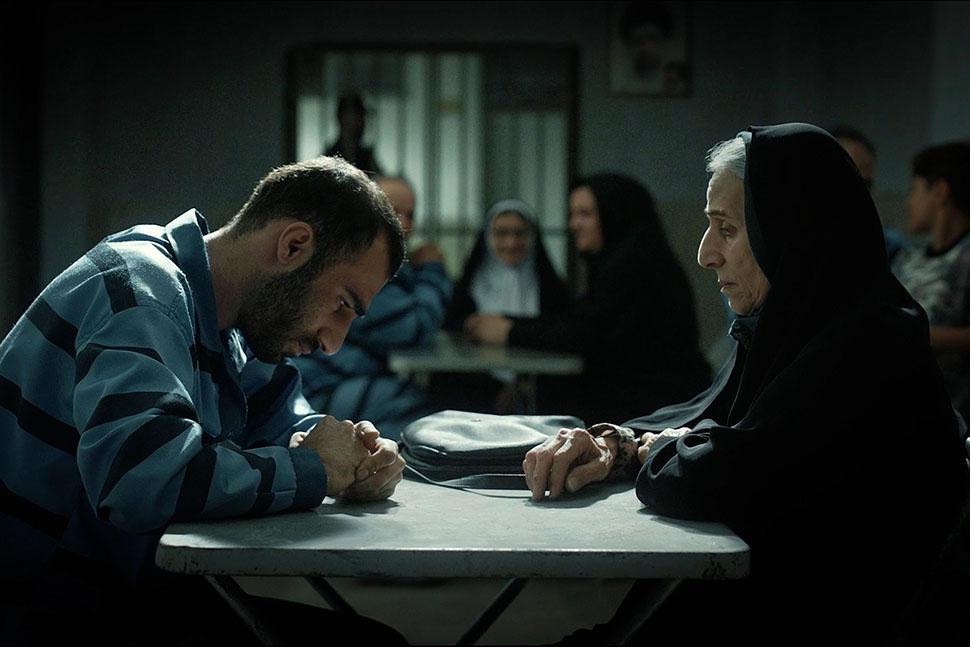
Shahed means witness, and the layers of the story dance around what it means to witness crimes, and what are the moral responsibilities of those who do. Both as a society, and as a family member, friend or neighbour. Even an activist like Tarlan has internal conflicts, and a pull to protect her own family in the form of her emotionally demanding and wayward son, as well as her impulse to survive in a society that she knows too well could lock her up and throw away the key. We watch her struggle to try and do everything all at once, and berate herself for silences she has already kept.
There’s a call on men to step up and be allies, at one point played out through a metaphor about some mice that’s a little clunky, but the point lands. Men need to help. It’s after all their problem. There isn’t really a single man in the film that’s up to the task. For a moment, there is a detective that seems to take Tarlan seriously in her quest for justice, adding some weight to the element of suspense. But in the end all the guys can do better. The point is also made that not all women are working together. There’s plenty of pressure to conform, and Solat’s sister doesn’t come out of the story at all well.
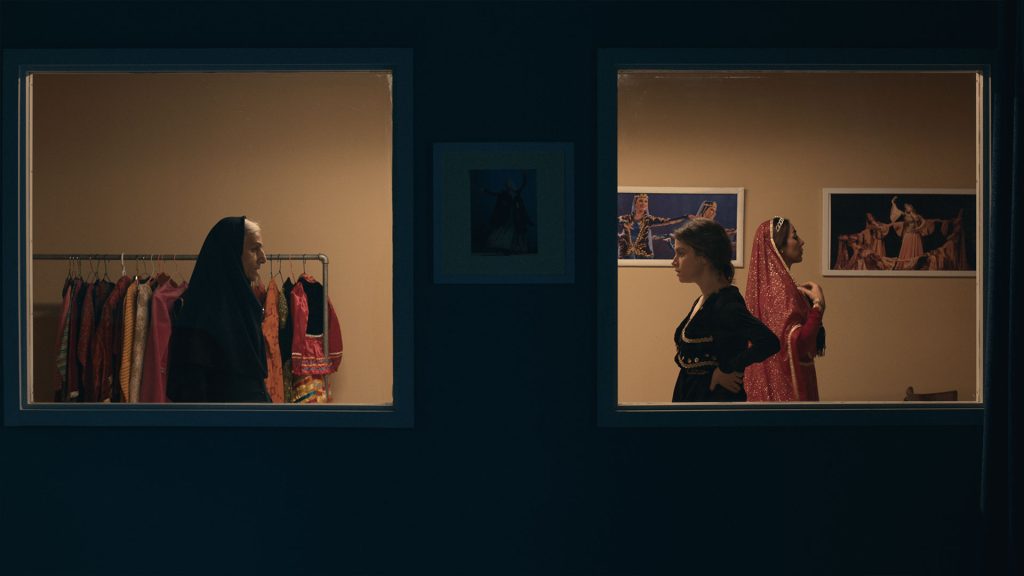
The co-writer of the screenplay is Jafar Panahi, who is just the kind of hero that is missing from the film. Imprisoned in 2022 after criticising the Iranian government, he was released in 2023 after a hunger strike.
Director Nader Saeivar and Panahi have worked together on many projects, including No Bears, which won the Special Jury Prize in Venice, notably in the absence of Panahi.
At more than some risk to themselves, the powerful commitment to continued documentation and storytelling around what is happening in Iran by both of these men is laudable.
At the finale of the film there’s a twist, and a dream of a peace between power and people. A long shot of Zara’s daughter Ghazal, throwing open the curtains, and dancing till out of the frame, is a mirror of the new generation’s desire to find a solution not through violence but through art and self- expression. It’s reminiscent of those 1960s photos of Vietnam war protestors in the USA placing flowers in the end of rifles pointed at them by soldiers in the National Guard.

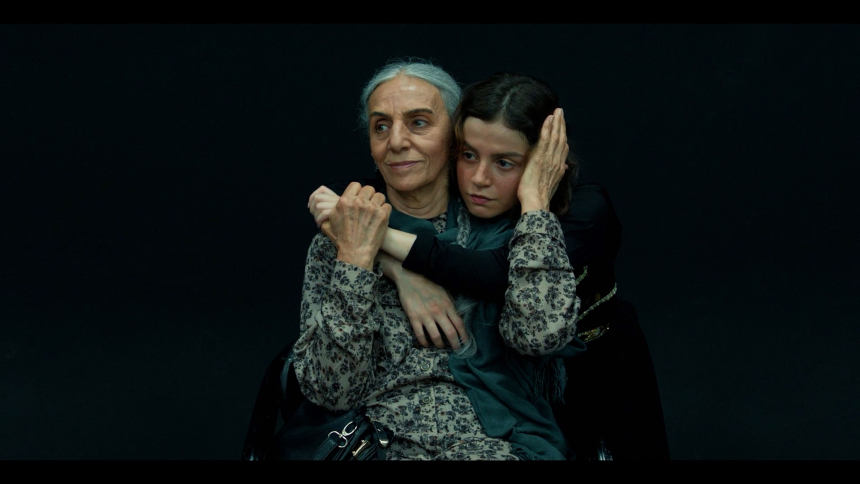
Iran was having its own revolution a decade later when women’s rights were violently stripped from them, and the final credits of the film contain raw footage of young women being beaten, dragged around in the streets, and bundled into the back of cars to heaven knows where, not in 1979, but in 2022 during the Woman, Life, Freedom movement which followed the arrest and assassination by the police of several young women opposing mandatory hijab.
There’s also charming home video in the same end credits of young women dancing, charming until you realise that these young women are no longer with us, there lives ending all around the same date- 2022. It’s a dark history that is far from over, and its films like this that help shine a light on it.
As women’s rights are being stripped around the world, in countries which until recently were some of the most liberated, its also a warning to everyone about what can happen when right- thinking people don’t do enough to stand up to the slide into madness.

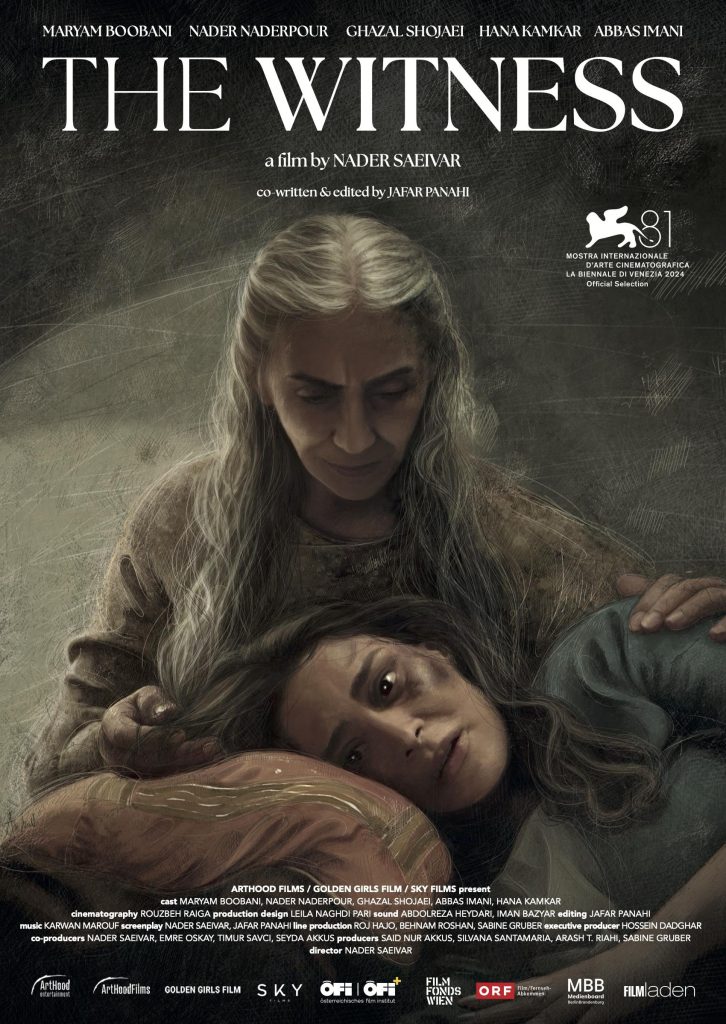
The 11th Persian Film Festival will be held from 24th of April to 11th of May 2025. The program will include an official competition in feature, and short film categories where the Festival Jury will present the Golden Gazelle Award to the best film in each section. The festival will open in Sydney and will tour to Melbourne (1-4 May) and Armidale (9-11 May).




